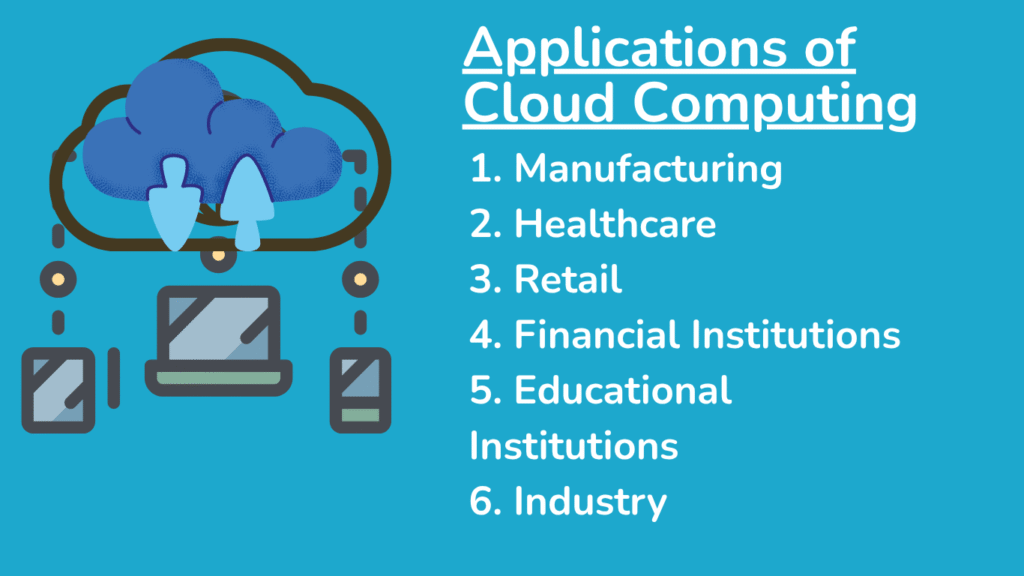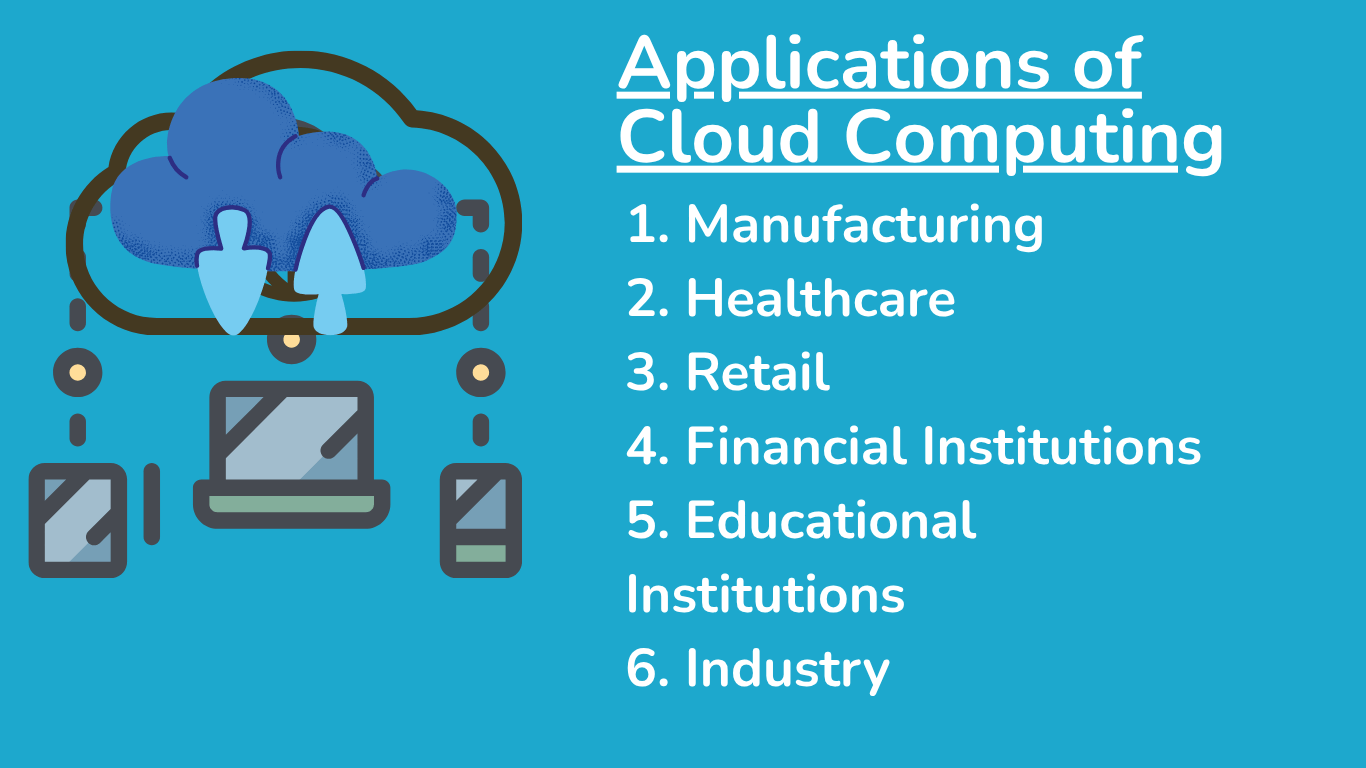In this article, we’ll explore various applications of cloud computing in various fields.

Cloud computing offers numerous advantages, including improved data security, cost reduction, increased efficiency, scalability, and enhanced collaboration. It also provides disaster recovery options, mobility for remote work, and automatic software updates.
Cloud computing has fundamentally transformed how businesses operate across all sectors. As we’ve seen, cloud applications now power everything from basic daily operations to complex industry-specific processes.
Applications of Cloud Computing
1. Manufacturing
Cloud-based supply chain management has become a game-changer. Companies can now track inventory levels, supplier details, and logistics in real-time, enabling better demand forecasting and streamlined order fulfillment.
This visibility allows manufacturers to make faster, more accurate decisions about production schedules and inventory deployment. For instance, instead of calling suppliers to check the component availability, manufacturers can instantly access their inventory through shared cloud platforms.
2. Healthcare
Healthcare organizations increasingly leverage cloud computing for transformative care delivery. Cloud platforms securely store and manage vast amounts of patient data while enabling telemedicine services that extend care beyond physical facilities.
Cloud-based electronic health records (EHR), providers can access patient information from anywhere, facilitating better care coordination and reducing errors. Moreover, IT leaders consider the cloud the most secure way to manage sensitive patient data.
3. Retail
In retail, cloud-based inventory management systems provide real-time visibility across all sales channels. These solutions help retailers forecast demand, optimize pricing strategies, and enhance customer experiences.
Through cloud applications, companies can analyze customer trends with added granularity and make more accurate predictions for approaching seasons.
4. Financial Institutions
Financial institutions employ cloud computing for highly secure, low-latency platforms for analytics and decision support. Notably, Swift and Google Cloud are pioneering advanced AI and federated learning technologies to combat fraud in cross-border payments, enabling financial institutions to share fraud intelligence without compromising sensitive data.
5. Educational Institutions
Educational institutions benefit from virtual learning environments that facilitate seamless collaboration and content sharing. Cloud-based administrative systems automate time-consuming tasks like admissions, grading, and attendance tracking, consequently improving overall efficiency.
In fact, cloud computing makes education more flexible and inclusive by enabling access to learning materials from virtually any device with an internet connection.
6. Industry
Industry cloud platforms are rapidly emerging as specialized solutions that combine software, platform, and infrastructure capabilities tailored to vertical-specific needs.
These platforms significantly accelerate cloud adoption by pointedly appealing to business consumers beyond early technology adopters.
FAQs
Q1. What are the main benefits of cloud computing for businesses?
Ans. Cloud computing offers numerous advantages, including improved data security, cost reduction, increased efficiency, scalability, and enhanced collaboration. It also provides disaster recovery options, mobility for remote work, and automatic software updates.
Q2. How does cloud computing enhance business operations across different industries?
Ans. Cloud computing tailors solutions to specific industry needs. For example, in manufacturing, it enables real-time supply chain management. In healthcare, it facilitates secure patient data storage and telemedicine services.
Retailers use cloud-based inventory systems, while financial institutions leverage it for fraud prevention.
Q3. What are some popular cloud-based applications for businesses?
Ans. Popular cloud-based applications include Salesforce and HubSpot for customer relationship management, Microsoft Teams and Zoom for communication, Dropbox and Google Drive for file storage and sharing, and entertainment platforms like Netflix and Spotify for streaming services.
Q4. How does cloud computing support data security and disaster recovery?
Ans. Cloud providers implement robust security measures like authentication, encryption, and permissions management. They also offer multiple redundancies to ensure data availability during emergencies. This approach helps businesses maintain data integrity and comply with industry regulations.
Q5. What factors should businesses consider when adopting cloud computing?
Ans. When adopting cloud computing, businesses should consider their specific needs, scalability requirements, budget constraints, and industry regulations. It’s also important to evaluate different cloud service providers, understand their pricing models, and assess the potential impact on existing workflows and employee training needs.
